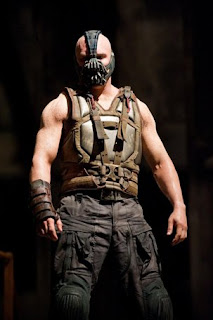SPECIAL REVIEW: TIMBUKTU
 In my last review, I spoke of my desire to jump at the chance to go to another film opportunity at my college. I'm very happy to say that I was able to: the French Club funded a quick day trip to Charlottesville's Paramount Theater, where Abderrahmane Sissako's latest film Timbuktu was screening. For Oscar enthusiasts like myself, the name struck out as being nominated as one of the five best foreign language films at this past Academy Awards! Sissako himself was there, and while I would've loved to hear him talk about his film my group was on a strict time schedule. I can confidently say that this was my first Mauritanian film experience, but that probably goes without saying.
In my last review, I spoke of my desire to jump at the chance to go to another film opportunity at my college. I'm very happy to say that I was able to: the French Club funded a quick day trip to Charlottesville's Paramount Theater, where Abderrahmane Sissako's latest film Timbuktu was screening. For Oscar enthusiasts like myself, the name struck out as being nominated as one of the five best foreign language films at this past Academy Awards! Sissako himself was there, and while I would've loved to hear him talk about his film my group was on a strict time schedule. I can confidently say that this was my first Mauritanian film experience, but that probably goes without saying.Timbuktu, though its narrative structure is not solely driven
on a particular set of characters, concerns the impact a group of Muslim jihadists has on the very remote titular city. Primarily it involves the affairs of Abdelkerim and his wife Satima, their two small children and their herd of cattle. The jihadists slowly and, to the misfortune of the natives, effectively begin instilling their radical beliefs and extreme policies. That means women must cover themselves entirely, including a fish saleswoman who speaks the audience's thoughts: "We've already had to cover our heads, how do you expect me to sell fish with gloves?" In the film she is taken away, and hardly seen after. This is the face of those who stood against the oppression.
 |
| One of Timbuktu's more colorful characters |
While at the Oscars it went home empty-handed, this was not the case at France's equivalent of the Oscars, the Cesars. It nearly had a full sweep with seven out of eight awards won, including wins for its gorgeous, sweeping cinematography and its memorable, mood-setting music. What interests me is that it picked up no acting nominations: perhaps because the film has such an authentic feel to it the actors just seem like natives being filmed, going on their day to day lives and trying not to be affected by the jihadists. I enjoyed it, and even though the ending is jarring, there's a lot of substance Sissako puts into something a little over an hour and a half. The man has a lot to say. (And I wish I could've heard him say it!)
Rating: 3/4 stars



Comments
Post a Comment